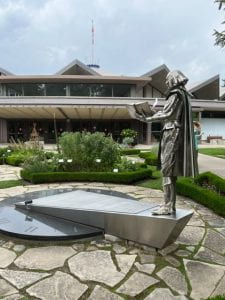What a sad day when a school board eliminates Black Literature and Black History, because of “ideological indoctrination,” as if school is a place to be indoctrinated. The school board assumes that a course indoctrinates student by mere exposure, rather than by how the curriculum is taught.
If there are specific objections to a teaching methodology the school board should comment on observed examples of “indoctrination,” defining how a racial agenda is delivered in the classroom. No teacher should indoctrinate any students, regardless of the political purpose. Teachers are not trained to indoctrinate students, but to get them to think.
What any secondary curriculum teaches is critical reading, where students recognize the ideologies through discussion and written responses. No secondary student is supposed to digest an ideology without evaluating it. If you read Huckleberry Finn with numerous examples of the “N” word, does that make Mark Twain a racist? That is a debatable question, and students learn by reading critically to decide why Twain used the word.
Is All Quiet on the Western Front an anti-war novel or a realistic account of World War I from the viewpoint of German soldiers? Students can argue both ways. That is the point of reading controversial literature: to articulate your own interpretation, discuss it and defend it. You don’t become an anti-war activist by reading All Quiet. You identify the ideology and decide if you agree with it. It is worth mentioning that the novel and its sequel The Road Back were banned and burned during the Third Reich. Now that was a book with ideology!
How about Pygmalion by that feminist and socialist George Bernard Shaw, and which later became My Fair Lady? What a loss for the literature curriculum to eliminate that book, and yet it is full of satire on the wealthy, patriarchal class in England in the 20th century. No one expects that play to indoctrinate students, so we give George Bernard Shaw a pass.
Yes, Black literature and Black history are ideological curricula. They would not be worth reading if they weren’t. The writing of Frederick Douglas, W.E.B Dubois, and Ida B. Wells is some of the timeless historical prose of our culture. They all had something to say about enslavement and prejudice. Of course they were ideological! Reading them does not have to be indoctrination.
Are school administrators so helpless and gullible that they assume to read is to be brainwashed? It calls into question the education these leaders experienced. Are they the kind of student who wrote down everything the teacher said then regurgitated it back on their exams? Did they use this system all the way through college and graduate school to keep their grades up? Is that what they think education is?
So the bottom line is that the Francis Howell school board does not want its students even exposed to the culture of Black America, because they don’t trust them to read Black authors without getting indoctrinated. Sad for the loss of a valuable culture, but sadder still that the school board thinks so little of its students and teachers that they don’t give them credit for reading critically and identifying the ideological substructure in history and literature.
Education is about asking the right questions and hearing thoughtful responses. It is not about avoiding the wrong ideas for fear of indoctrination.
N.B. The school board restored Black studies to the curriculum, later that week, but insisted the curriculum of the Southern Poverty Law Center could not be used.










